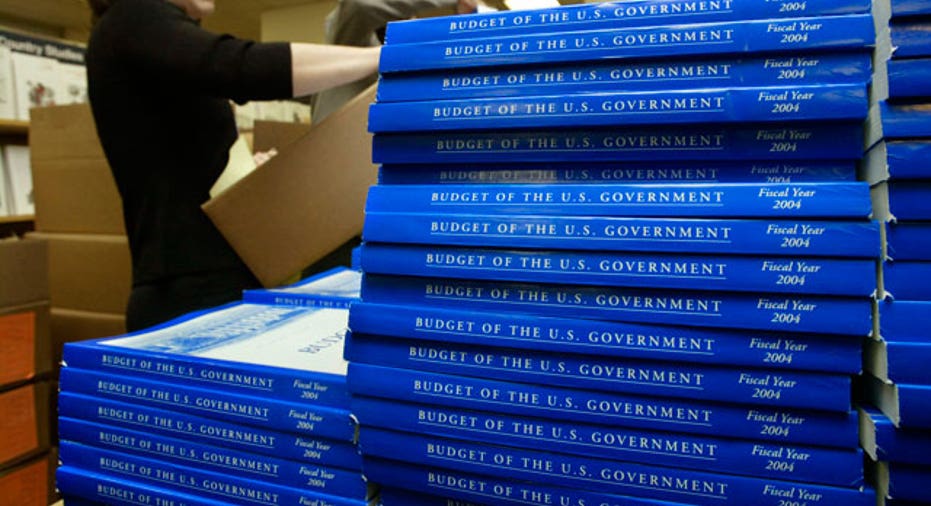Debt Ceiling Deal: Winners and Losers

Like many a heavyweight boxing match, the brawl in Congress over how to close the federal budget deficit and raise the debt ceiling was brutal, drawn-out and largely inconclusive, with the combatants looking to a rematch even before the ending bell.
That rematch is inevitable because the debt ceiling deal known as the "Budget Control Act of 2011" actually decides very little, says Marc Goldwein, policy director at the Committee for a Responsible Federal Budget based in Washington, D.C.
"All of the spending cuts, or almost all of them, are sort of unspecified at this point," Goldwein says. "They either come from caps in discretionary spending, which must be decided by House members on an annual basis, or they come from this new super committee, and we have no idea what that super committee is going to recommend."
Goldwein is referring to the Joint Select Committee on Debt Reduction to be formed to determine where funding cuts should occur. If that committee, split down the middle between both houses of Congress and both parties, can't agree on a plan that pares at least $1.2 trillion from the budget deficit by Nov. 23, a "trigger" will be pulled that automatically makes across-the-board cuts to the federal budget to meet that goal, with some key programs exempted.
Although it's difficult to assess winners and losers this soon after passage of the new debt ceiling, here's an early take.
Winners in the Debt Ceiling Deal
- Investors. "The winners are investors, obviously, to the extent that there's not a default or another market scare as a result of us not raising the debt ceiling," Goldwein says. The law provides for debt limit increases until 2013, which should help reassure global financial markets and the millions of Americans who have a portion of their investments in U.S. Treasuries.
- Taxpayers. Despite initial demands from Democrats that part of the deficit-reduction plan consist of tax hikes on wealthier Americans and corporations, Republican lawmakers shaped a deal that raises no additional government revenue from higher taxes. Instead, all the deficit reduction in the bill comes from spending cuts.Goldwein says that although the super committee does have the authority to raise revenue through raising taxes, that's not a foregone conclusion.
- Medicare beneficiaries. Because of the committee's broad mandate to find deficit reduction in the federal budget, Medicare and other entitlements could be cut, Goldwein says. But if the committee fails, Medicare is specifically protected in the text of the new law, with the percentage that can be cut from Medicare programs limited to 2% per fiscal year.
- Social Security beneficiaries. Like Medicare, Social Security is fair game for super committee cuts, but the new law specifically exempts Social Security from automatic cuts, should the group fail to reach an agreement.
- Beneficiaries of other exempt government programs. Numerous benefit programs for economically distressed families, including Medicaid, Supplemental Nutrition Assistance and unemployment benefits, also are exempt from the triggered cuts.
- College students who receive Pell Grants. The law secures funding for Pell Grants to undergraduate students by eliminating federally subsidized student loans for graduate and professional students.
Losers in Congress' Debt Deal
- Defense industry workers. If the debt-ceiling deal's trigger is pulled, a big portion of the budget cuts are slated to come from the U.S. defense budget, including funding for the departments of defense and homeland security. That could mean cancellation of numerous defense programs, a harrowing prospect for those working for defense contractors.
- Government contractors. Defense contractors aren't the only government contractors who could seem themselves squeezed. With nearly every part of the federal budget on the chopping block, government contractors of all stripes will likely see their businesses affected by federal austerity.
- Beneficiaries of nonexempt state-aid programs. About one in three dollars spent by states comes out of the federal budget, according to a study by the National Association of State Budget Officers. Whatever combination of cuts to programs end up being enacted by the Congress will likely squeeze state budgets even tighter than they are now.
- Government employees. With the federal government in austerity mode, government employees at all levels will not likely be on the receiving end of too many raises, benefit increases or other perks in the federal budget, and many government workers will likely see pink slips as a result of budget constraints.



















